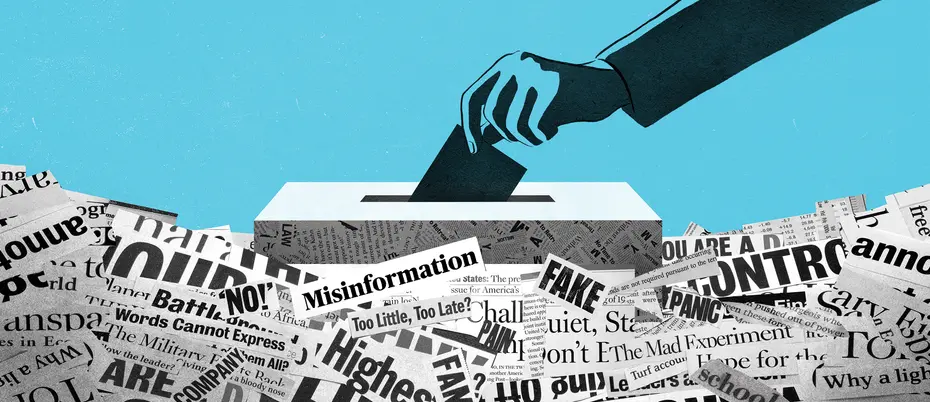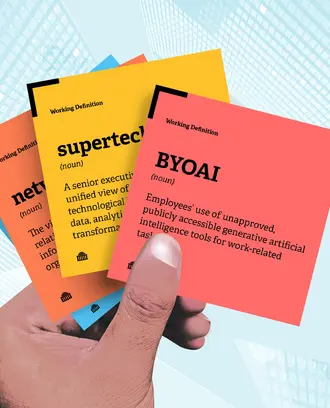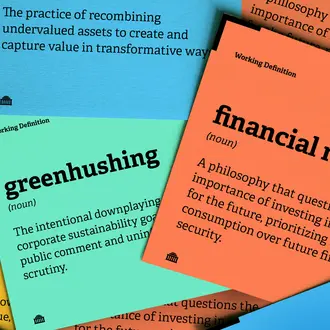Social Media
In election cycles, voters tend to believe news that confirms their biases
When individuals assess the truthfulness of political news during an election period, their beliefs become significantly more partisan, research finds.
In today’s polarized political landscape, discerning real news from fake is more important — and tougher — than ever. Are everyday voters capable of untangling truth from fiction, despite their political affiliations?
Not so much during election cycles, according to an MIT Sloan assistant professor of applied economics. A new paper he co-authored, “Beliefs About Political News in the Run-up to an Election,” found that voters across party lines are more likely to believe news stories that confirm their preexisting biases during an election cycle than they are during nonelection time frames.
“It’s almost as if our defenses against misinformation go down during the election, which is exactly the time when we need to make up our minds,” Angelucci said.
60 seconds to the truth
To examine how partisan beliefs influence news discernment, Angelucci and co-authors Michel Gutmann, a former pre-doctorate MIT Sloan research assistant, and Columbia University’s Andrea Prat first enlisted three professional mainstream journalists to compose quizzes with true and false headlines.
The researchers then asked more than 10,000 paid survey respondents to label the headlines as true or false. The respondents, who were sourced across party lines from a sample provided by online research data and analytics tech group YouGov, were also asked about their media consumption and voting history and intentions.
The team issued a total of 12 quizzes from December 2018 to March 2022. Each quiz featured headlines referencing recent U.S. political news, with three true headlines culled from the AP and Reuters and three false headlines either created by journalists or pulled from sources such as the Snopes fact-checking website.
Respondents were told the proportion of true and false headlines from the outset and were incentivized with a bonus if they correctly identified all of the true headlines. To prevent respondents from sleuthing information online, they were given 60 seconds to identify which statements they believed to be true.
The team also issued a separate election news quiz in October 2020, a few days before the presidential election, that featured headlines from the preceding two years.
The researchers’ findings: When an individual was faced with a true and a fake news story outside of election season and was asked to select which story was most likely true, they were 4% more likely to call a story true if it reflected favorably on their party rather than unfavorably, regardless of its veracity; directly before the election, this preference climbed to 10%.
The findings have three major implications, Angelucci said.
Related Articles
1. Voters are more prone to misinformation that favors their own party during the crucial weeks leading up to an election — and, therefore, are less open-minded.
This partisan behavior strengthens during elections for all demographic groups, especially for men, white, lower-income, older, and non-college-educated respondents. In fact, the news beliefs of high-discernment groups (which the researchers define as older, white, and male) become at least as partisan as other groups during elections. This indicates that even those with strong discernment are prone to partisan bias in election periods.
“We’re putting out a word of caution that a lot of us think that we’re highly informed, highly educated, highly able to tell what’s true from what’s false but that’s not actually true,” Angelucci said. “It seems that we become political animals during elections. We become cheerleaders.”
As such, we’re much more vulnerable to manipulation during this period, which is reflected in Americans’ susceptibility to fake news. “We’re just consuming and believing news that confirms our beliefs,” Angelucci said.
2. Secondly — and most surprisingly, Angelucci said — the researchers found that survey respondents who self-identified as independents were just as partisan as their Democratic or Republican counterparts. Nobody, it seems, is immune to bias.
“The independents who lean either Democrat or Republican are often just as partisan as people who are openly Republican or Democrat, which we at first thought was a mistake,” he said. “There are very few independents that are truly neutral — less than 6%, maybe.”
3. Lastly, while bias is part of human nature, Angelucci said, many people don’t realize that they have such tendencies, which is the most pernicious threat of all.
“A lot of us think we’re open-minded. A lot of us think, ‘Sure, I could vote for the other side under the right circumstances.’ But I think we’re kidding ourselves,” Angelucci said. “Most people have preexisting political identities.”
Ultimately, Angelucci hopes that these findings encourage people to challenge long-held beliefs and acknowledge our natural tendency toward bias when evaluating the news.
“The public should be careful because during elections, we tend to lose our sanity a little bit and not process information the way we should,” he said.
The news isn’t all bad, though. The researchers’ findings indicate that most people are more politically open-minded outside of election season. Political strategists should take heed and, perhaps, time their messaging accordingly.
“A positive message from our paper is that, collectively, we should do more deliberation outside of election cycles, because we’re less biased then,” Angelucci said.
Read the paper: Beliefs About Political News in the Run-up to an Election




